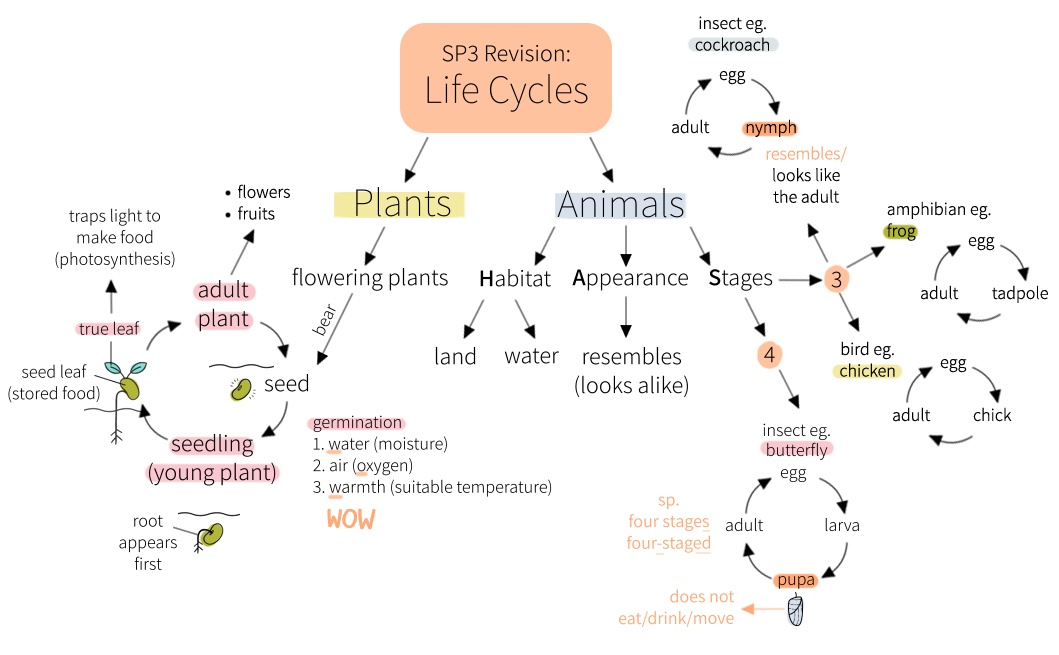Contributed by Ms Feodora Tang, Academic Director of TLL Rochester.
With over five years of experience in teaching English at TLL, Feodora has helped many of her students excel in class and exams. In this article, she shares three valuable tips in guiding your child to tackle Term 3.
Is your child ready for the semester ahead?
After a long school vacation, I’ve noticed that my students often find it difficult to get back into the school routine.
In addition, one common question I receive from parents at the start of the semester would be on how they can best prepare their child for the remaining half of the academic year.
Here are 3 effective tips I would love to share with you.
My solutions for your child:
At home, practise good housekeeping of notes and worksheets
In school, seek clarification for challenging concepts as soon as possible

With more material to cover in the second half of the year and limited time to revise for exams, careful consolidation of knowledge will be key for effective revision.
One effective way to consolidate all that has been learnt throughout the year is to conduct regular housekeeping of worksheets and notes.
Systematically filing completed notes, worksheets and tests will allow your child to easily review the materials covered thus far.
Your child may file his or her work:
by components for English and Chinese(i.e. continuous writing, cloze passages, etc)
by topics for Math and Science (i.e. Geometry, Life cycles of plants, etc)
I usually encourage my students to file their corrected work alongside their other completed work. This is important as it will allow your child to reflect on and learn from past mistakes.
Additionally, your child can also choose to summarise the various topics and concepts in the form of mind-maps or charts. It is a great way for visual learners to consolidate, review and revise what they have learnt.

As a teacher, I always remind my students to clarify any doubts they may have, especially right after a new topic or concept has been taught.
It is important for your child to ask questions as soon as any doubts arise and not to wait until the following week. This prevents him or her from being further confused or from having misconceptions about the topic or concept later on.
For example, if your child does not master the basic concept of past tense, he or she may be unable to understand other forms of past tense such as past continuous tense and past perfect tense.
Refer to the table below I would use in my English class to illustrate the conjugation of the verb "eat" in past tense, past continuous tense and past perfect tense to my students.
| Past Tense | Past Continuous Tense* | Past Perfect Tense |
| Indicates an action that happened in the past. | Indicates a past action in progress when another action happened. | Indicates an action which took place before another in the past. |
| I ate an apple yesterday. | I was eating an apple when Mother called me. | I had eaten an apple before Mother called me. |
*Side note on past continuous tense: in this case, the past continuous tense is used for the longer “background” action and the simple past tense is used for the “interrupting” action
My solutions for your child:
Learn from previous exam mistakes
Clock sufficient practice time
The completed SA1 examination paper is a good indicator of how your child performs under time and exam pressure.
Based on my teaching experience, I have noticed that under examination conditions, some children may forget to use techniques or apply concepts they have previously learnt.
The table below shows some of the common errors your child may have made in each subject.
| English | For comprehension, your child may not have sourced for clues using the keywords in the question or may not have answered in the same tense as the question. |
| Math | For word problems, your child may have missed out on using important keywords which resulted in him or her not meeting the question requirements. |
| Science | For Free Response Questions (FRQs), your child may have understood the concepts but was unable to formulate answers using the relevant scientific keywords as required by his or her school. |
Identifying these gaps in exam skills early will help your child become more reflective about his or her learning. This means your child can be more mindful of when he or she sits for the next exam.
For a full list of subject-specific exam review questions, download our Post-SA1 checklist for you and your child. Click here or the link below to download!

Bonus Tip: When reviewing exam papers, your child should also:
pay special attention to any comments given by the teacher
take note of repeated mistakes made — these indicate that your child may not have fully understood where he or she went wrong in previous assignments or tests
In the lead up to the CA2 or SA2, your child should come up with a list of topics covered for each subject. This will give him or her a clearer overview of what has been covered throughout the year.
From this list, your child can then prioritise the topics to review for each subject to ensure that revision time is wisely utilised. Don't forget to include notes and previously attempted exercises, topical reviews or test papers.
Does your child only practise questions which he or she is already proficient at? You may want to consider working with your child in coming up with:
a list of challenging topics or questions to practise
a comprehensive revision plan that includes a range of question types

My solution for you: Review and support your child’s goals
If your child has set goals earlier this year, it will be helpful to review these goals and the steps that need to be taken to achieve them.
Here are two easy ways to encourage positive goal setting with your child:
Celebrate with your child if he or she has started working towards his or her goals or has reached the interim milestones that were set
Acknowledge your child’s efforts — this will go a long way in building confidence and helps to develop his or her self-motivation
Goal setting is linked to your child’s motivation. Education researcher A. Bandura (1997) suggests that motivation comes from adopting a specific mindset. By getting your child to think about what he or she wants to achieve (i.e. setting goals) and the specific plans he or she has to achieve them, your child will develop the confidence to follow through and find success.
Another key piece of research that sheds light on the importance of goal setting is Robert Wood and Edwin Locke’s (1990) work, which establishes a relationship between goals and self-efficacy (an individual’s belief in his or her ability to have control over one’s motivation and behaviour).

Last but not least, I would like to add that establishing a good partnership with your child’s teachers plays a pivotal role in ensuring that your child gets the emotional support needed in his or her learning journey.
This is because as a parent, you want to know how and what your child is learning in class. And as a teacher, I want to know how best to help my students.
Being aware of your child's performance can help you make more informed decisions on how to best support his or her learning at home.
Having an open communication channel with my students' parents helps me better understand my students' learning needs.
This helps me to zoom in on key areas of concern in class or to make a greater concerted effort to help my students with a specific skill or need.
Do endeavour to share with your child's teachers on how your child is doing at home, especially if there are any important changes that may affect him or her at school.
For example, if you know that your child is feeling a little lost with the current topic being covered, it would be a good idea to let his or her teacher know. In class, teachers can make slight changes to their lesson plan, adding in extra opportunities for students to clarify their doubts.
Give your child the best guidance to ensure he or she is on the right track for the semester ahead.

The Learning Lab is now at 8 locations. Find a location that suits your needs.
If you have any enquiries about our programmes, please email us at enquiry@thelearninglab.com.sg or call us at 6733 8711 and we will be happy to assist you.